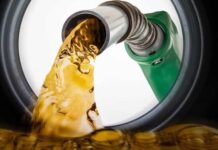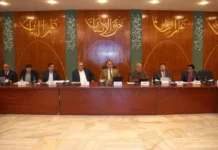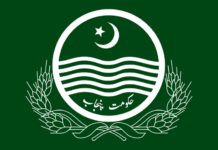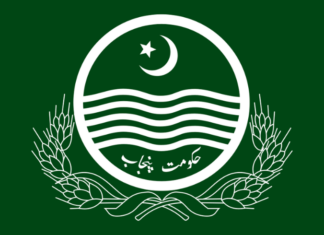LAHORE: The recent scandal regarding the ‘use of fake stamps of Pakistan’s Embassy in Japan to import used cars’ is a clear example of how importers are damaging Pakistan’s progress in tackling issues pertaining to money laundering.
Although the country has made some progress in its anti-money laundering (AML) drive in recent times, it still has to report back to the Asia/Pacific Group on Money Laundering (APG) under the Financial Action Task Force (FATF) in order to avoid being blacklisted by the global watchdog.
According to sources, the Customs Appraisement Department had recently started an investigation wherein it was unearthed that a used luxury car was imported from Japan on a ‘fake clearance certificate’ of Pakistan’s embassy. Upon further probe, it was revealed that a number of vehicles have already been imported on fake documents of Pakistani Embassy in Japan.
“This incident shows that importers are damaging the government’s efforts to curb money laundering,” an official source privy to this development told Profit. “This is also a violation of the newly announced Auto Development Policy.”
It may be noted that the government had recently issued SRO-52(1) 2019 to curb misuse of used cars’ import policy, noting that it causes a massive flight of foreign exchange from the economy.
The conditions stipulated in the SRO were to facilitate genuine overseas Pakistanis, discourage the policy’s misuse by unscrupulous commercial importers, ensure proper documentation of the entire transaction process, and help Pakistan comply with international commitments towards FATF and AML laws.
“Now, once again, importers are trying to pressurise the government by proposing various import schemes,” said the source, adding that this will only result in further damaging the local auto industry and the country’s economy.
“The new Auto Development Policy has attracted several new entrants who have invested over $2 billion cumulatively and are about to start their volume production. Hence, liberalising the import of used vehicles will go against the spirit of this policy and discourage global OEMs from further investments in Pakistan,” he reasoned.
“The government needs to consider that attracting and maturing new investments in large-scale manufacturing is a multiyear effort and one wrong step could seriously put to waste all efforts in this regard.”
He opined that local manufacturers, combined with hundreds of parts’ producers, dealers and the industry’s four million employees, generate far more revenues, as compared to concessionary duties earned from import of used vehicles.
“Therefore, opening used cars’ import will send a wrong message to all existing and new investors who have invested in Pakistan by trusting that the government will ensure a long term enabling policy environment.”
Moreover, he said, import of used vehicles not only costs the economy over $2 billion annually, it also takes away thousands of job opportunities from youth of Pakistan to other countries.
“With a contracting economy, fewer employment opportunities and limited foreign exchange reserves, Pakistan cannot afford CBU imports in any form,” he said, adding that every new vehicle manufactured in Pakistan only uses a fraction of foreign exchange for its CKD imported content versus a completely built vehicle, which costs three times more foreign exchange.
























Government needs to probe against custom officials who are involved in this scam as no one can use fake documents without their consent.Similarly smuggling through Iran and Afghanistan borders is done with the collusion of high up officials of security forces posted their to protect the interest of mother land. All who had remained posted in customs or on border crossing need to be investigated.
How about car manufacturers scamming the public with substandard yet expensive vehicles in addition to minting money by not increasing capacity while selling cars in the black market. The government must allow used car imports to create competition unless car makers increase production and quality while increasing parts localization to reduce cost. They have bribed all previous governments and engineering development board for decades – IK government must get an independent inquiry done and punish the cartels that are abusing the public at large.
Surprised to see profit is also ignoring public interest and supporting car makers. I am sure most readers must be so unhappy to notice as they never give IK government a chance or adequately report all the successes against status quo, corruption and white collar criminals / mafia.
The “source” is clearly in the anti-import camp of the discussion and it is unfair to air such a source’s opinion alone.
The existing assemblers must not enjoy perks allowed for manufacturers and must price their products competitively with better quality. These assemblers don’t want to engage in open competition and design and use such government policies through their shills in the decision making processes to not allow open competition through imported cars. They know they will lose selling low quality expensive junk unless there is nothing to compete with them.
Regarding such frauds, it is best to find who was involved end-to-end and punish them to the extent of law indiscriminately. That alone will ensure this doesn’t happen again.
CKD kits and imported maintenance spares (even rudimentary air/oil filters) over vehicle life cost equally high if not more.
PAPAAM is already crying over tactics of these assemblers where they pressurize and blackmail PAPAAM vendors against low quantity orders with delayed payments while using their name and employment to blackmail the government to formulate favorable policies.
it cost only 1500 dollars to pay for a 2019 model 660cc car plus shipping. rest of amount go to govt of Pakistan. while a low quality 2019 new car cost MINIMUM 10 thousand dollars out of which more than 3000 dollars or much more is sent out by local manufacturers, which are much assembling rather than manufacturing. but we always try to support low standards EXPENSIVE local assembled cars. neither they transfer technology nor offer competitive prices. they always blackmail that they are employing millions.